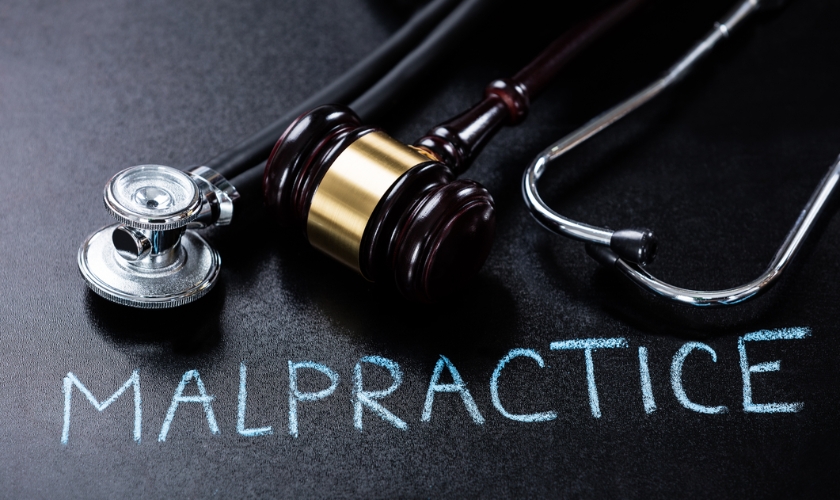
In the realm of healthcare, trust between patients and healthcare professionals is paramount. When that trust is compromised due to medical negligence, the consequences can be severe, leading to profound physical, emotional, and financial hardships for the affected individuals and their families. Missouri, like every state, maintains a distinct set of legal standards governing medical malpractice cases, providing a framework for individuals seeking recourse in the face of substandard medical care.
The purpose of this comprehensive guide is to dissect the intricate nature of medical malpractice in the state of Missouri. We will explore the fundamental elements that define medical malpractice, the obligations healthcare professionals owe to their patients, and the legal criteria that must be met to pursue a successful claim.
Defining Medical Malpractice in Missouri
Medical malpractice, in a legal context, occurs when a healthcare professional deviates from the standard of care, leading to harm or injury to a patient. In accordance with Missouri statutes, a plaintiff is typically required to initiate a medical malpractice claim within two years. This “statute of limitations’’ begins from the date of the alleged neglect. It is crucial to note that there is a maximum time frame of 10 years for malpractice claims. To establish a medical malpractice case, the following elements must generally be present:
- Duty of Care: Central to any medical malpractice claim is the existence of a duty of care. This duty is established when a doctor-patient relationship is formed. When individuals seek medical assistance, a tacit understanding emerges that healthcare professionals will provide a level of care consistent with accepted medical standards.
- Breach of Duty: The crux of a medical malpractice case often revolves around whether the healthcare professional breached the duty of care. This breach occurs when the healthcare provider fails to meet the standard of care expected in their particular field.
- Causation: Establishing a causal link is imperative in a medical malpractice case. It necessitates demonstrating that the breach of duty directly led to the harm or injury suffered by the patient. The plaintiff, with the guidance of legal and medical experts, must convincingly establish that, but for the healthcare provider’s negligence, the harm would not have occurred.
- Damages: While the duty of care, breach, and causation form the foundation, a medical malpractice claim requires tangible evidence of harm. Damages may manifest as physical injuries, emotional distress, additional medical expenses, loss of income, or a combination thereof. The legal system acknowledges and compensates individuals for the actual losses they have incurred due to medical negligence.
Common Examples of Medical Malpractice
Misdiagnosis or Failure to Diagnose
One of the most prevalent forms of medical malpractice is the misdiagnosis or failure to diagnose a medical condition accurately and in a timely manner. When a healthcare professional overlooks symptoms, provides an incorrect diagnosis, or delays diagnosis, it can result in delayed treatment, allowing the condition to progress and causing additional harm to the patient.
Surgical Errors
Surgical procedures demand precision, and errors in the operating room can have severe consequences. Examples of surgical malpractice include:
- Operating on the wrong body part.
- Leaving surgical instruments inside the patient.
- Performing unnecessary procedures.
- Making errors during the administration of anesthesia.
Each of these instances can lead to substantial harm and prolonged suffering.
Medication Errors
Mistakes in prescribing, dispensing, or administering medication constitute another common form of medical malpractice. This can involve prescribing the wrong medication, incorrect dosage, or failing to consider a patient’s known allergies or potential drug interactions. Medication errors can result in adverse reactions, worsened conditions, or new health complications.
Lack of Informed Consent
Patients have the right to be fully informed about the risks and benefits of a medical procedure before giving their consent. Failure on the part of healthcare professionals to provide adequate information and obtain informed consent can be considered medical malpractice. This is particularly relevant in situations where patients undergo procedures without a clear understanding of potential complications.
Proving Medical Malpractice in Missouri
Proving medical malpractice is a nuanced and intricate process, requiring a meticulous presentation of evidence to establish that a healthcare professional deviated from the standard of care, resulting in harm or injury. In Missouri, as in other jurisdictions, several key aspects must be considered when building a case for medical malpractice.
Central to proving medical malpractice is the reliance on expert testimony. Plaintiffs must enlist the support of qualified medical experts who can articulate the standard of care applicable to the specific circumstances of the case. These experts provide invaluable insights into what a reasonably competent healthcare professional would have done in similar situations and how the defendant’s actions deviated from this standard.
The standard of care is the benchmark against which a healthcare professional’s actions are measured. Expert witnesses play a crucial role in defining this standard, outlining the accepted practices and procedures within the relevant medical community. Establishing what is considered reasonable and appropriate care forms the foundation for demonstrating a breach of duty.
Establishing a clear causal link between the healthcare professional’s breach of duty and the harm suffered by the patient is critical. This requires demonstrating that the negligence directly resulted in the patient’s injuries or worsened their condition. Expert witnesses play a crucial role in connecting the dots, illustrating how the deviation from the standard of care led to adverse outcomes.
Adhering to the statute of limitations is crucial in pursuing a medical malpractice claim in Missouri. Please file within the specified timeframe to avoid the dismissal of the case. It is imperative to consult with legal professionals to ensure compliance with the applicable deadlines.
Steps to Take if You Suspect Medical Malpractice
Document the Incident
Begin by meticulously documenting the details of the incident. Record dates, times, and a chronological sequence of events leading up to and following the suspected malpractice. Include any conversations with healthcare professionals, noting names, titles, and the content of discussions. Detailed documentation serves as a foundation for building a case and provides a clear record of your experiences.
Gather Medical Records
Collect all relevant medical records associated with the suspected malpractice. This includes test results, treatment plans, prescriptions, and any other pertinent documentation. Comprehensive medical records are essential for both your understanding of the situation and for presenting a compelling case to legal professionals.
Seek a Second Opinion
Consult another healthcare professional to obtain a second opinion on your condition and the treatment provided. This not only serves to validate your concerns but also provides an independent assessment of the situation. The second opinion can be valuable in establishing the standard of care and identifying any deviations that may have occurred.
Contact a Medical Malpractice Attorney
Reach out to an experienced medical malpractice attorney in Missouri as soon as possible. Medical malpractice cases are complex, and having legal guidance is essential. An attorney specializing in this area of law can assess the viability of your case, guide you through the legal process, and help you understand your rights and options.
Consider Mediation or Settlement
In some cases, pursuing mediation or a settlement may be a viable option. Your attorney can guide you through the negotiation process and help you assess whether a settlement is in your best interest. While litigation is an option, alternative dispute resolution methods can lead to faster resolution and reduced stress.
At the heart of every medical malpractice case are individuals whose lives have been irrevocably altered by circumstances that could and should have been prevented. Understanding what qualifies as medical malpractice in Missouri is essential for individuals seeking justice for injuries caused by healthcare negligence. The legal process can be intricate, and having a knowledgeable attorney by your side is crucial for building a strong case. If you believe you have a valid medical malpractice claim, don’t hesitate to seek legal advice and take the necessary steps to protect your rights. Remember, the pursuit of justice is a fundamental right, especially when it comes to matters as critical as healthcare and well-being.




